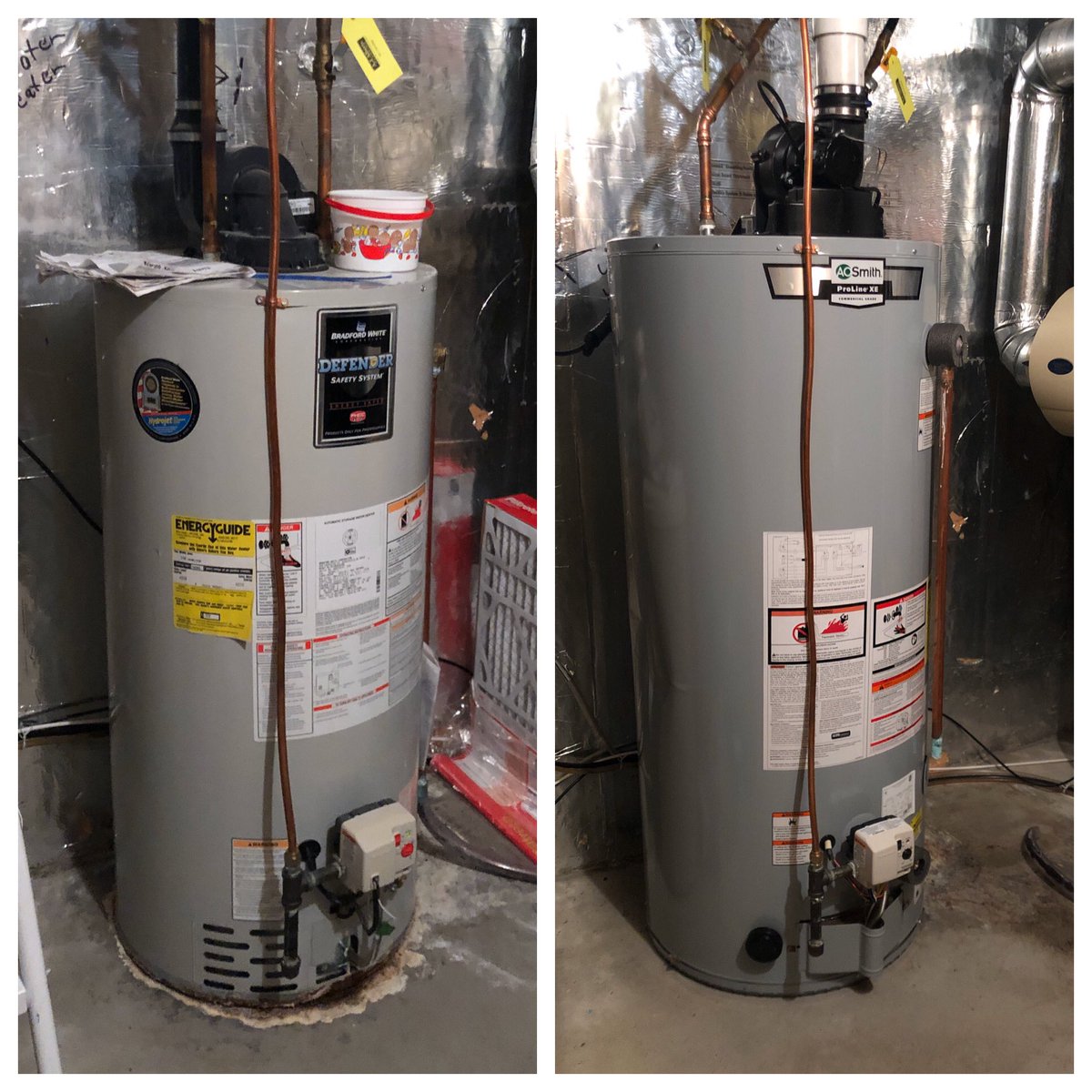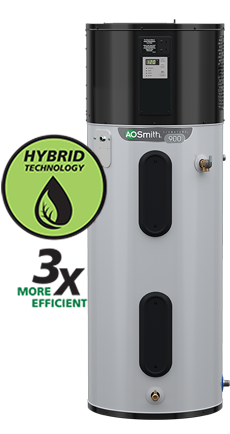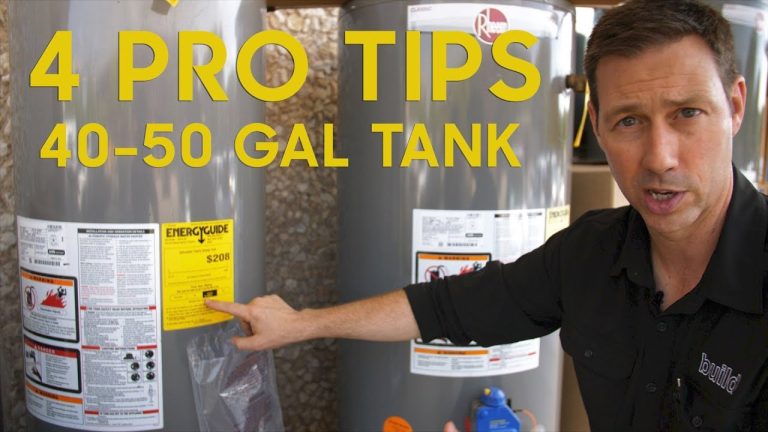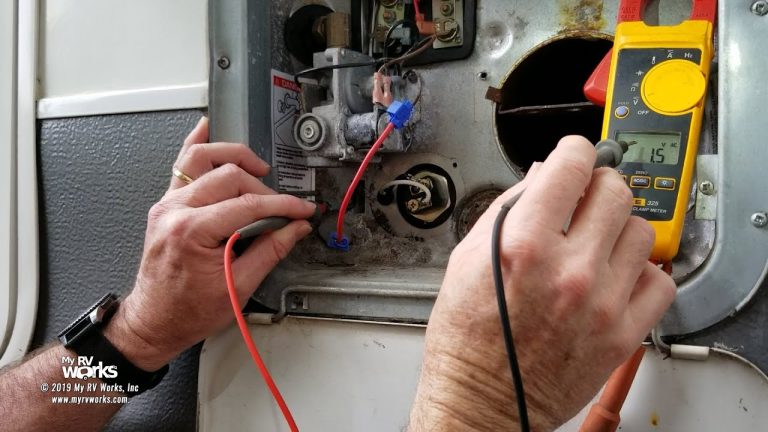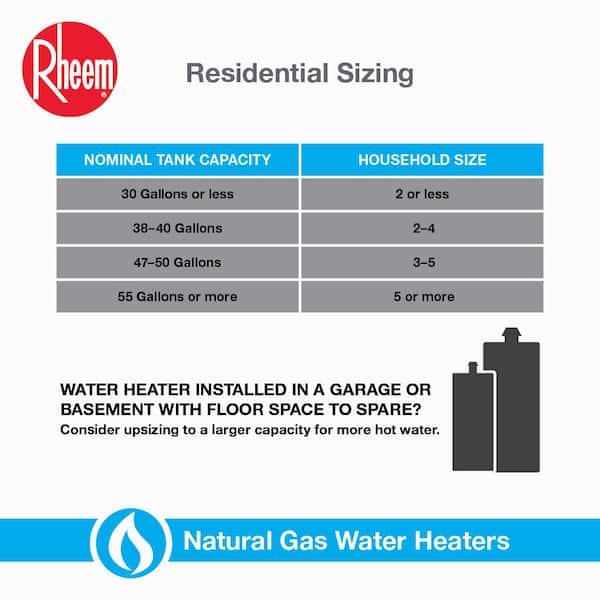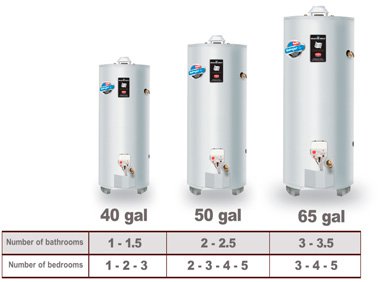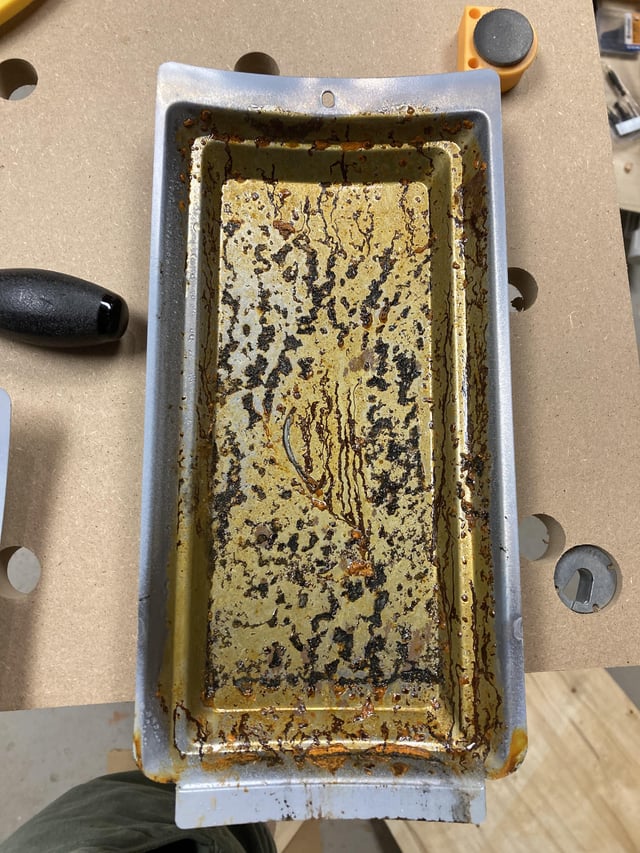A 50-gallon water heater suits smaller households, while a 75-gallon unit is better for larger families with higher hot water demands. Choosing the right water heater size impacts your home’s efficiency and comfort.
A 50-gallon water heater typically fits the needs of a household with 2-3 people, providing enough hot water for daily activities like showers, dishwashing, and laundry. On the other hand, a 75-gallon water heater is ideal for larger families or homes with higher hot water usage, ensuring there’s always enough hot water available.
Understanding the differences between these two sizes can help you make an informed decision, balancing cost, energy consumption, and household needs. Selecting the appropriate size can lead to significant savings and improved convenience.
Capacity And Household Size
Choosing between a 50-gallon and a 75-gallon water heater depends on your household size. Larger families often benefit from the increased capacity of 75-gallon heaters, ensuring ample hot water for everyone.
Ideal Household Size For 50 Gallon
A 50-gallon water heater is perfect for small families. It can serve up to three people. This size is great for homes with one bathroom. It can handle daily showers and dishwashing.
Ideal Household Size For 75 Gallon
A 75-gallon water heater suits larger families. It can serve up to five people. This size is ideal for homes with two or more bathrooms. It can handle multiple showers and laundry loads.
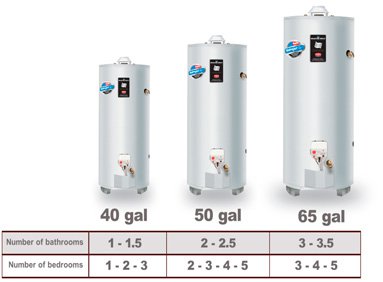
Credit: homeinspectiongeeks.com
Energy Efficiency
Comparing 50-gallon and 75-gallon water heaters reveals significant differences in energy efficiency. A 50-gallon heater generally consumes less energy, making it a more cost-effective choice for smaller households.
Energy Consumption Of 50 Gallon
A 50-gallon water heater uses less energy than a 75-gallon one. It heats water faster due to its smaller tank size. This can save money on your energy bills. Regular use can lead to lower energy consumption. Maintenance is also simpler with a smaller tank. This makes it a good choice for smaller households.
Energy Consumption Of 75 Gallon
A 75-gallon water heater uses more energy but provides more hot water. It is better for larger households with high water usage. The larger tank size means it takes longer to heat up. This can increase energy costs over time. Regular maintenance is essential to keep it efficient. It offers the benefit of meeting higher demands.
Installation Requirements
Proper space and venting are essential for installing both 50-gallon and 75-gallon water heaters. Ensure the area meets local building codes.
Space Considerations
A 50-gallon water heater needs less space. It can fit in small areas. A 75-gallon water heater is larger. It needs more room for safe installation. Both heaters need to be in a dry place. They should be away from flammable items. Proper ventilation is also important. Always check the space before buying.
Installation Costs
Installing a 50-gallon heater is usually cheaper. It takes less time and effort. A 75-gallon heater costs more to install. It might need extra parts and labor. Both types may need permits. Always include permit fees in your budget. Professional installation ensures safety and efficiency. Choose wisely based on your needs.

Credit: www.dimensions.com
Cost And Budget
Comparing costs, a 50-gallon water heater generally requires a lower upfront investment than a 75-gallon model. Budget considerations should also factor in energy efficiency and potential long-term savings.
Initial Purchase Price
A 50 gallon water heater costs less than a 75 gallon water heater. Expect to pay around $400 to $600 for a 50 gallon model. A 75 gallon model can cost between $700 and $1,000. The larger size means a higher price.
Long-term Cost Of Ownership
Energy efficiency affects long-term costs. A 50 gallon heater uses less energy than a 75 gallon one. Maintenance costs can also differ. Parts for larger heaters may be more expensive. Consider installation costs as well. Larger heaters might need special fittings.
Performance And Recovery Rate
A 50-gallon water heater heats water quickly. It is ideal for small families. The recovery rate is usually good. Most models recover in about an hour. This means you won’t wait long for hot water.
A 75-gallon water heater holds more water. Larger families benefit more. The recovery rate is slower compared to a 50-gallon heater. It might take more than an hour to fully recover. You get more hot water, but you wait longer.
Environmental Impact
Choosing between a 50-gallon and 75-gallon water heater significantly impacts energy consumption. Smaller heaters generally use less energy, reducing your carbon footprint. Larger units, while providing more hot water, may increase greenhouse gas emissions.
Eco-friendly Features
The 50-gallon water heater uses less energy. It heats water faster. This means less electricity or gas is used. 75-gallon water heaters can store more hot water. They can support larger households. But they may use more energy. Installing solar panels can help both sizes. This reduces the energy they need from the grid.
Carbon Footprint
50-gallon water heaters often have a smaller carbon footprint. They require less energy to operate. 75-gallon heaters may need more energy. This could mean more carbon emissions. Using energy-efficient models can help both sizes. Insulating the heater also reduces energy use.
Maintenance And Longevity
50-gallon water heaters need regular flushing. This helps to avoid sediment buildup. 75-gallon heaters also need this care. Larger tanks may need more frequent checks. Always inspect for leaks and rust. Both sizes need annual maintenance for best performance. Keeping the tank clean is very important. Clean tanks work better and last longer. Replace anode rods regularly. This prevents rust and damage.
50-gallon water heaters last about 10-15 years. Proper care can extend this. 75-gallon heaters have a similar lifespan. They also last 10-15 years. Tank material affects lifespan. Stainless steel tanks last longer. Regular maintenance is key. Clean and inspect your heater often. Replace parts as needed. This ensures a long life for your heater.

Credit: waterheatertimer.org
Frequently Asked Questions
Which Water Heater Is More Energy-efficient?
A 50-gallon water heater is typically more energy-efficient for smaller households. However, a 75-gallon unit may be more efficient for larger families.
How Long Does A 50-gallon Water Heater Last?
A 50-gallon water heater generally lasts around 8-12 years. Proper maintenance can extend its lifespan.
Is A 75-gallon Water Heater Worth The Cost?
A 75-gallon water heater is worth the investment for large families. It provides consistent hot water supply.
Can A 50-gallon Heater Meet High Demand?
A 50-gallon water heater can meet high demand for small to medium households. Larger families may need more capacity.
Conclusion
Choosing between a 50-gallon and a 75-gallon water heater depends on your household needs. Consider your family’s size and hot water usage. Both sizes have their advantages, so assess your specific requirements. Make an informed decision to ensure comfort and efficiency.
Investing in the right water heater can enhance your home’s convenience.
